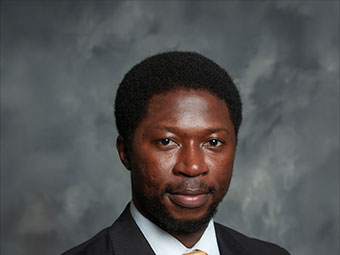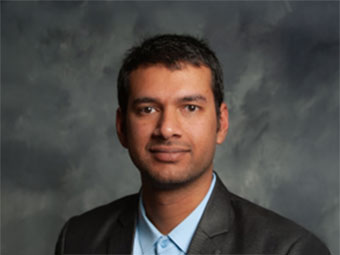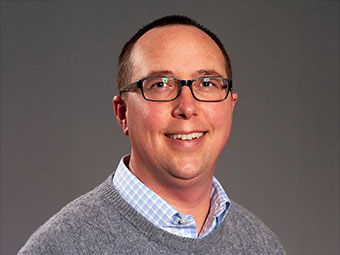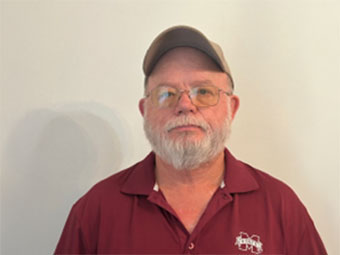As part of our USGS mandate and in our role as MSU faculty members, we are privileged to mentor young scientists at various stages in their career paths. From funding water science (link to Funding Water Science) projects at Mississippi institutions to working with graduate students, we are committed to fostering scientific integrity, curiosity, and collaboration.

Oluwadamilare Oloyede is a graduate research assistant in the Mississippi Water Resources Research Institute. He holds a bachelor's degree in agronomy (University of Ibadan, Nigeria), master's degree in soil resources management (University of Ibadan, Nigeria), and an international joint master’s degree in soils and global change with specialization in physical land resources (Ghent University, Belgium & Aarhus University, Denmark).
His research interests are in soil-plant-atmosphere relationships. He studies the effects of weather and climatic factors on crop production, and crop responses to a single or combination of climate-related stresses. He considers adaptation mechanisms to the effects of climate change, and develops strategies for efficient resource use by crops, especially water resources. Hence, his research interests span through the areas of soil water management, soil nutrient evaluation and management, and soil physics.
He is currently studying for a Ph.D. in agronomy at Mississippi State University, with his research focusing on the impact of alternate wetting and drying and tailwater recirculation system on greenhouse gas emissions and evapotranspiration in rice. He will combine Eddy Covariance data with remote sensing tools to develop strategies to quantify and monitor the ecological footprint of rice production in the U.S.

Pankaj Prashad Joshi is a graduate research assistant at the Mississippi Water Resource Research Institute at Mississippi State University under the supervision of Dr. Madhav Dhakal. He has his bachelor's degree in agriculture from Tribhuvan University, Nepal in 2014 and completed his Master’s in Agronomy from Agriculture and Forestry University, Nepal in 2016. He is pursuing his PhD in Agronomy in the Department of Plant and Soil Sciences at Mississippi State University.
His research interests include climate-smart agriculture, greenhouse gas emissions and sustainable agriculture. He has research experience in conservation agriculture practices, varietal improvements and fertilizer management in row crops.
Currently, he is involved in agronomic management in row crops contributing to mitigating greenhouse gas emissions. He is investigating the effect of protected fertilizer and regenerative management on greenhouse gas emissions from corn using trace gas analyzers. He aims to simulate the results and create a validated model for estimating the gas flux in response to management practices.

Jason Hampshire joined MWRRI in September 2023. He brings a diverse background of knowledge with past research in hydrology/hydrogeology, meteorological sensor development & weather data collection, and regional/national emerging energy market options. Hampshire holds a Master of Public Administration, environmental and natural resources policy (Boise State University) with undergraduate degrees in geosciences - hydrology (Boise State University), and business - marketing (Xavier University). He is currently completing his Ph.D. in agronomy at Mississippi State University.

Mr. Kenneth Aasand joined the MWRRI in May 2024 after completing his Bachelor of Science degree in Interdisciplinary Studies. His emphasis areas were business and political science. As a nontraditional student and retired military member, Mr. Aasand has a unique background in water science having served as lead water chemistry technician aboard a nuclear-powered submarine while enlisted in the U.S. Navy. He has also served as a member of the Oktoc Rural Water Association Board of Directors. His current interest is the impact of the increasing regulatory burden, financial burdens and the aging infrastructure issues of rural water associations across the state and how those issues affect the continued viability of those systems. Kenneth is presently completing his master’s in business administration.